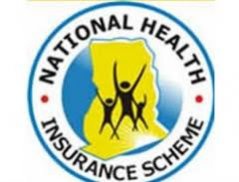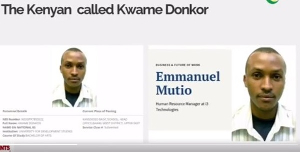Authorities of the National Health Insurance Scheme (NHIS) are reported to have uncovered attempts by some service providers and officials of the NHIS in some parts of the country to defraud the scheme.
Some providers of the Scheme are said to have over-invoiced the NHIS in claims submission and have also been sharing the utilisation data of patients with other providers, who in turn resubmit this data for claims.
The irony of the situation is that these illicit transactions sometimes involve officials of the NHIS. About GH¢1.1million in overpaid claims to about 13 facilities was discovered recently in Bawku, as well as some “shady undertakings” in Savelugu in the Northern Region. The Western and Central Regions have also been cited among places where such underhand dealings go on.
In addition, some subscribers of the NHIS have also been found to be engaging in “provider shopping” by moving from one hospital to another to collect medicines for resale, or for members of their family who may not be on the scheme.
These problems have led authorities of the scheme to consider a review of provider payment methods. Dr. Kwabena Opoku-Adusei, President of the Ghana Medical Association (GMA), addressing participants at the 13th Annual Public Lecture of the GMA in Kumasi -- organised under the theme “NHIS Capitation: Effect on End User and Prospects for National Scale-Up”-- said the interest of people, particularly in the Ashanti Region, in the NHIS is fast-declining after 21 months of piloting the capitation policy.
“Active membership of the scheme in the region, which stood at 1,678,995 in January 2012, dropped to 1,309,400 as at December 2012. Unfortunately, however, the declining trend appears to continue with current records indicating that the active membership as at July 2013 stood at 866,117 after dropping from 980,125 at the beginning of the year,” Dr. Opoku-Adusei said.
He said the poorly-defined scope of capitation services, delayed payment of capitation fees, low sensitisation of clients and scheme providers are some of the reasons why the scheme is being confronted with numerous challenges since the introduction of the capitation policy.
He recommended that the National Health Insurance Authority and providers agree on a capitation rate and benefit packages, while also urging that some health facilities should be upgraded and new ones established and provided with basic equipment, logistics and staff with skills to deliver quality health to members.
The Minister of Health, Sherry Ayittey, observed that the NHIS has served the objective for which it was implemented about a decade ago. She pledged that government will expand coverage to people with mental health, physical disability, prostate-cancer, and family-planning services.
She said the capitation policy, which is just one of the provider payment mechanisms, has been challenged by issues such as insufficient public education on the mechanisms for accessing care under the system, while the existence and reliability of data systems for assigning patients appropriately also remain a challenge.
She said passing the new NHIS Act (Act 852) offers the requisite impetus to vigorously broaden and expand the national health care scheme for the benefit of all Ghanaians. She added that the District Mutual Health Insurance Schemes will be phased out and replaced with NHIS, thereby improving efficiency in provider payment mechanisms.
Business News of Friday, 6 September 2013
Source: B&FT
Deals at NHIS exposed

















